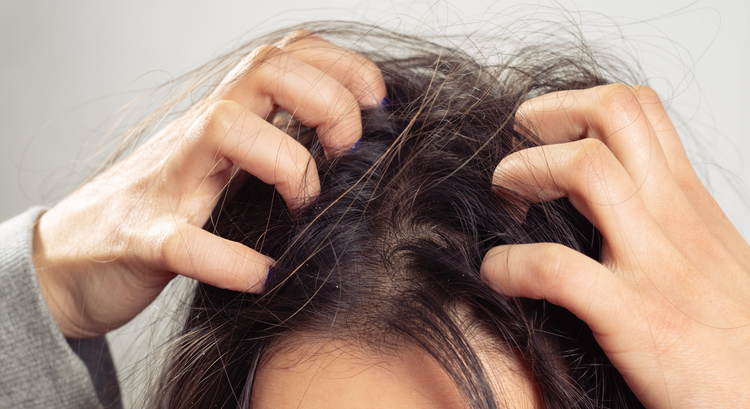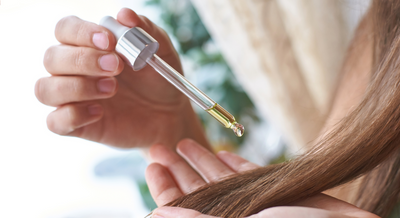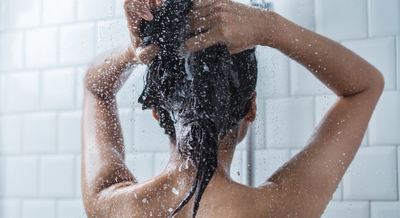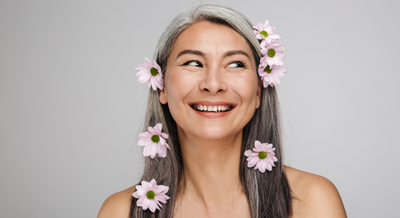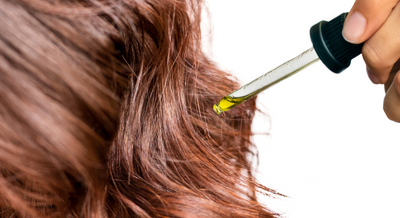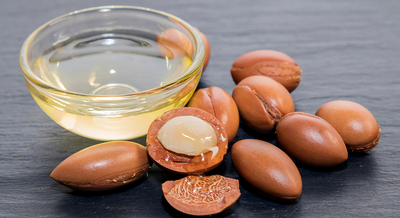Having a dry and itchy scalp can be a real annoyance. It makes you scratch until you bleed, which is irritating and painful. If you have applied different home remedies and nothing works, read on to discover what may be causing your dryness and look to eliminate it from your everyday routine.
There are various reasons for the scalp to go dry. Here are the major ones, along with the remedies for you to fix it.
1) Dandruff
You might see white and greyish flakes on your shoulders, or stuck in your hair... That’s dandruff. It is the build-up result of dead skin cells. Having dandruff means you have a dry and dehydrated scalp. In these conditions, the scalp may itch. Sometimes refraining yourself from scratching becomes torture. However, remember scratching can give rise to even more dandruff.
How to treat it: For minor dandruff, using an anti-dandruff shampoo a few times a week is usually enough to cast away this skin disease. In extreme cases of dandruff, you might want to consult an expert. They may suggest an antifungal or antibacterial shampoo as a treatment option instead.
2) Extreme weather conditions
Winters are drier than summers; and in cold conditions, the moisture content in the atmosphere reduces to a minimum. In these drier surroundings, our scalp and hair become devoid of moisture. A dehydrated scalp can sometimes itch badly, and also give rise to dandruff. Either way, you face discomfort.
How to treat and prevent it. Apply moisturizer regularly to keep your skin well- moisturized. Built-in Shampoo moisturizers are also the right choice when you have to wash your hair in winter. But remember, never wash your hair with hot water. Using cold water traps the moisture in your hair and doesn’t let the existing moisture your hair has evaporate.
Click Here for Hydrating Hair Products
3) Allergic reaction to hair care products
Some people are allergic to certain chemical substances present in hair care products such as shampoo, conditioners, or styling products. The most common symptom of this type of an allergy is to get a rash, along with an irresistible urge to scratch said rash. You might go mad because that is how itchy bad allergies typically are.
For people who color their hair, allergic contact dermatitis is a common side effect. It is an allergic reaction that causes redness and rash over a region of the scalp. Usually, it happens because of a substance para-phenylenediamine (PPD) present in the pigments which you use to dye your hair.
How do we treat it: To prevent the allergy from spreading further, you must stop using that specific product or any other product with the same chemical ingredients..
4) Sun scorched scalp
During sunbathing, if you forgot to put sunscreen on your scalp, or wear a hat as a protective covering, then it might leave your scalp scorched. The burns from the sun’s rays depend upon how long you were exposed to direct sunlight. In the case of long exposures, the skin can get severely burnt. In the worst-case scenario, it can trigger hair loss as well.
The sun-rays carry electromagnetic waves that have immense power. Staying for a long time with an uncovered head can eliminate the moisture present on your scalp and cause dehydration.
How to treat it: There are plenty of ways you can get rid of the discomfort the burnt skin causes. One of them is by using hydrocortisone cream, which helps heal the sunburned areas of your body. For sun-damaged hair, be sure that you are using a moisturizing conditioner and hydrating yourself well.
5) Head Lice
Head lice feast on unhygienic conditions of your scalp. Our skin is sensitive to the lice’s saliva, and because it can cause an allergic reaction, it increases scalp itchiness. The lice infestation and scratching may even permanently damage your skin and scalp.
How do we treat it: To get rid of the itch, we must get rid of the head lice first. There are plenty of oils, shampoos, and treatments available for eliminating head lice.
6) Unhygienic conditions
Not taking care of your head can lead to an abnormal amount of hair oils to accumulate on your skin and hair. This additional amount of oil present on your skin can cause dandruff to grow, which ultimately makes your head itchy and dry.
How do we treat it: Washing your head with clarifying shampoos that are used once in a while will help to prevent the accumulation of oils.
7) Unhealthy diet and dehydration
If you're not consuming enough vitamins and minerals, this will eventually lead to severe deficiencies in your required nutrients. If your body is in bad shape, it ultimately affects the condition of skin all around the body, especially on the scalp. Without enough nutrients, your body will stop functioning normally. Your skin will turn dry because of a lack of water. Then your hair will become dull and may start to fall.
How do we prevent it: This can be prevented by remembering to consume nutrient-rich food and a healthy diet. Vitamins A, C, and E are great choices to use in order to keep your skin healthy. Keeping yourself hydrated is also key to having younger and more lively looking skin.
8) Scalp ringworm fungus
As the name implies, this is a type of fungus that feasts on your scalp and multiplies on it. Bald and red patches may appear suddenly anywhere on your head. Sometimes they feel bumpy because of the pus-filled inside. This will ultimately cause an infection. The infected area may become intensely itchy. This may lead to other hair issues including, hair loss, redness, bald patches, itchiness, and intense rash.
How do we treat it: You should consult a dermatologist for prescribed medication as it cannot be efficiently dealt with without medication.
Other major skin-related diseases such as skin cancer, Atopic dermatitis, scalp psoriasis, and nerve problems may also cause a dry and itchy scalp. However, these are worst-case scenarios of skin-related diseases and not near as common as the ones listed above. If you believe one of these issues may be the root of your problem it is best to consult medical professionals in order to complete treatment. Only they can guide you thoroughly, and prescribe related medication to cure the respective disease.

